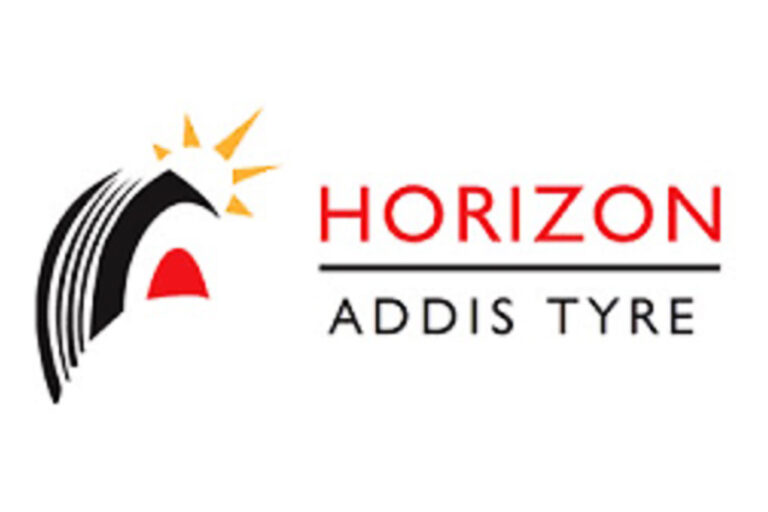The volume collected through Treasury Bills (T-bills) mushrooms in the past fiscal year. Since the market determined T-bills auction was introduced government has commenced a one year maturity in the year.
It was recalled that late 2019 the government had introduced bimonthly market determined rate T-bills auction that took place at the National Bank of Ethiopia (NBE) on the aim to attract more players and avoid direct advance it received from the central government.
On the 2020/21 fiscal year that ended on June 30, the net issuance of T-bills with different maturity was about 97.2 billion birr that makes the total outstanding to 121 billion birr.
The debt analysis of the Ministry of Finance stated that the participation of government and private owned commercial banks on the T-bills market showed an improvement compared to the previous quarters and last year. It reminded that T-bills with a maturity of 364 days was introduced and showed improvement in the last three quarters.
The average yield for Treasury bills, which is negotiable securities issued by the government mainly in short term obligations, of 28 days, 91 days, 182 days and 364 days has increased compared to last year same period.
From the total public sector outstanding domestic debt the share of T-bills instrument has also increased since it started on the new scheme and has stood at 10.6 percent at the 2020/21 fiscal year.
At the same time, the share of T-bills for the GDP has stood at 2.54 percent. The main objective of government in introducing the competitive auction on the T-bills was to drop the direct advance and mobilize the resource from potential actors like financial sector and other big investors for the demand it fulfills in developmental projects and also to control the inflation by sacking excess money from the market.
While direct advance for the year has shown slight increment compared with the preceding year but it is still significantly lower compared with the behavior before the economic and political reform that was emplaced about three years ago.
The reason for the sharp drop for direct advance is government’s replacement with treasury bills.
For the year, the direct advance that central government received from NBE is 83.5 billion birr that has a share of 7.32 percent from the total public sector outstanding domestic debt for the 2020/21 fiscal year.
The direct advance share for the total outstanding domestic debt was close to quarter in 2016/17, 2017/18 or 2018/19 fiscal years, which indicated that since the new market based T-bills auction was introduced, it played a major role to reduce the volume that the government secured from direct advance.
In the 2019/20 fiscal year, the government accessed only 31 billion birr, which was 3.4 percent of the total outstanding domestic debt, through direct advance.
Before the introduction of market determined T-bills auction, the stock of old Treasury Bills which was 149.3 billion birr as at December 4, 2019 was converted into the newly introduced treasury notes.
The stock of direct advance which was 192.2 billion birr was also converted into long term bond as of July 7, 2019.
T-Bills continue to mushroom
EIC records revenue highs
The state owned insurance company, Ethiopian Insurance Corporation (EIC) asset rises to 18 billion birr, while reaching an annual premium of over 6.1 billion birr. Additional to its existing services, the company is waiting a green light from the National Bank of Ethiopia (NBE) to start the COVID-19 clinical trial insurance policy.
As the CEO Netsanet Lemessa said, the company has submitted its interest to the national bank in January last budget year and is still waiting for the approval from the NBE. As Netsanet said, NBE is working its assessment on the issue.
In its performance of the completed budget year, the company has registered 6.1 billion birr in premium revenue collection which is the highest tax revenue and 17.1 percent higher than the target. The amount of premiums registered during the fiscal year was 23.5 percent or 1.2 billion birr more than the previous fiscal year.
Of the total premiums registered, 5.9 billion birr or 96.5 percent of the total insurance was registered, while the remaining 216 million birr or 3.5 percent was registered in the long-term life insurance sector, according to the CEO. Netsanet said that the company has collected 44 percent of the premium in the insurance industry in the current fiscal year. He also explained that the annual plan was 89 percent, an increase of 52 percent compared to the same period last year.
The company has also secured 3.2 trillion birr from contract sales during the fiscal year, down 8.6 percent from the same period last year. The CEO attributed the reduction to the reduction in the number of passengers due to the CV-19 in the aviation security sector. In the fiscal year, it reported a total of 162,890 contracts for sales and renewals, which is 1 percent higher than the same period last year. The target was 98.7 percent of the target.
The company has also paid 1.3 billion birr in compensation during the fiscal year. This is an increase of 81 percent from the plan and 18 percent compared to the same period last year. The total insurance share is 1.2 billion birr or 93.8 percent, while the long-term insurance sector accounts for 79 million birr or 62 percent.
Regarding the company’s expenditure during the fiscal year, the compensation rate is 47 percent, which is lower than the plan and the industry’s compensation rate. One of the reasons why the company was able to make a huge profit of 1.12 billion birr during the fiscal year is that the compensation was low.
According to the company’s annual report, 1.4 billion birr worth of contracts were registered in the fiscal year. The total insurance sector has 1.39 billion birr and the long-term insurance sector has 13.2 million birr, which are 32.7 percent higher than the target and 54.7 percent higher than the previous fiscal year.
Despite the company’s successful performance during the fiscal year, it has not been able to achieve the desired results and move in certain areas. Ethiopia’s social, economic and political instability and ongoing conflict in the Tigray region are the major issues identified in the industry. As the CEO explained branches in the region have operated less than 40 percent of the plan.
Beside the COVID 19 epidemic, the rising cost of spare parts and maintenance costs along with foreign exchange rates are other challenges that are pushing the company to spend more than planned.
Other problems identified during the fiscal year include poor performance in construction project due to various challenges, delayed procurement and implementation of consulting services, and high competition in the cost-effective industry.
“Despite the problems identified during the fiscal year, the company’s performance is impressive,” said the CEO.
“As part of the life insurance, the company is preparing to do the same for the policy that covers all clinical trials by widening the scope,” said the CEO.
EIC shares are about 50 percent of the overall insurance market share in addition to the other 18 insurance companies in the country.
Horizon Addis Tyre tops in Africa Kaizen Award
Horizon Addis Tyre Manufacturing company wins the third Africa Kaizen award as an outstanding performer in the large scale organizations from the Africa continent for its excellent activities on quality and productivity improvement or Kaizen and having achieved better results which serves as a model cases to be shared in Africa.
The third Africa Kaizen award was held on August 25, 2021 in Tanzania. The company participated in the African Kaizen award, which was organized by AUDA-NEPAD and JICA (The African Union Development Agency- New Partnership for Africa’s Development and the Japan International Cooperation Agency). Announcement of the awardees was made at the Awarding ceremony 2021 which was held at the African Kaizen Annual Conference (AKAC) 2021. Accordingly, Horizon Addis Tyre manufacturing Plc was chosen and awarded as an outstanding performer in the large scale organization with a size of more than 250 employees for excellent activities on quality and productivity improvement or Kaizen.
As part of improving quality, productivity, competitiveness and building a good work cultures HATM PLC started implementing kaizen in October 2018.






